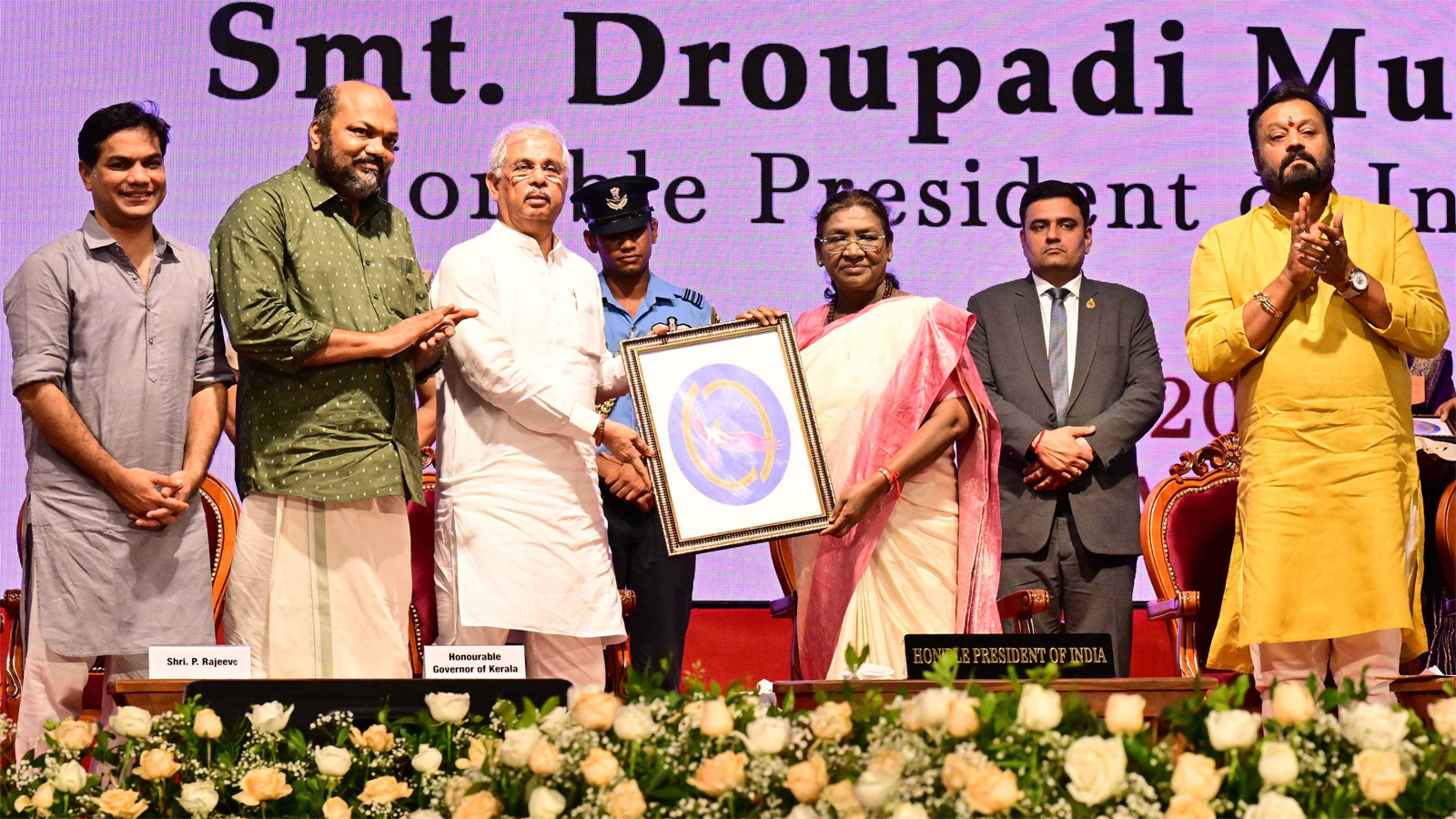President Droupadi Murmu on Friday attended the centenary celebrations of St. Teresa’s College in Ernakulam, Kerala, and lauded the institution’s century-long contribution to women’s education and social transformation.
Speaking on the occasion, the President commended St. Teresa’s College for its “steadfast commitment to spiritual values,” saying that the college has played a vital role in empowering women and advancing nation-building. “We should deeply acknowledge the vision and legacy of distinguished personalities who built this institution and led it through a century of sustained accomplishments,” she said.
Highlighting Kerala’s legacy of pioneering women leaders, President Murmu recalled that three of the fifteen women members of India’s Constituent Assembly – Ammu Swaminathan, Annie Mascarene, and Dakshayani Velayudhan – were from Kerala. “They influenced deliberations on fundamental rights, social justice and gender equality,” she noted, adding that their contribution shaped the foundation of modern India.
Quoting Ammu Swaminathan’s words from the Constituent Assembly debates, the President said that equal rights for women enshrined in the Constitution had empowered Indian women to shoulder responsibilities in building a great nation.
The President also paid tribute to Justice Anna Chandy, India’s first woman High Court Judge, and Justice M. Fathima Beevi, the first woman to serve on the Supreme Court of India.
Addressing students and faculty, President Murmu said that the young women of St. Teresa’s College represent “young India, thriving India, and vibrant India.” She emphasized that active participation of women is essential for India to fully realize its demographic dividend.
“Gender Budget allocation has increased four and a half times during the last decade, and women-led MSMEs nearly doubled between 2011 and 2024,” she said. “One of the key pillars for achieving the vision of Viksit Bharat by 2047 is to achieve 70 per cent women workforce participation.”
She also praised the college’s alumnae for their contributions across diverse fields such as civil services, diplomacy, science, academia, business, medicine, and social service.
President Murmu appreciated the college’s initiative titled SLATE (Sustainability, Leadership and Agency through Education), describing it as aligned with the goals of the National Education Policy (NEP) 2020. “By connecting young people with India’s Sustainable Development Goals and enabling them for the jobs of tomorrow, this initiative will help India emerge as a knowledge superpower,” she said.
She also lauded the college’s community radio initiative, Radio Kochi 90FM, for promoting grassroots participation and supporting local communities during times of need.
Encouraging students to pursue their passions with courage and clarity, President Murmu urged them to become agents of change. “A society led by women leaders is likely to be more humane while being more efficient,” she remarked. “I am confident that this generation of young women students will lead India into becoming Viksit Bharat by 2047.”










